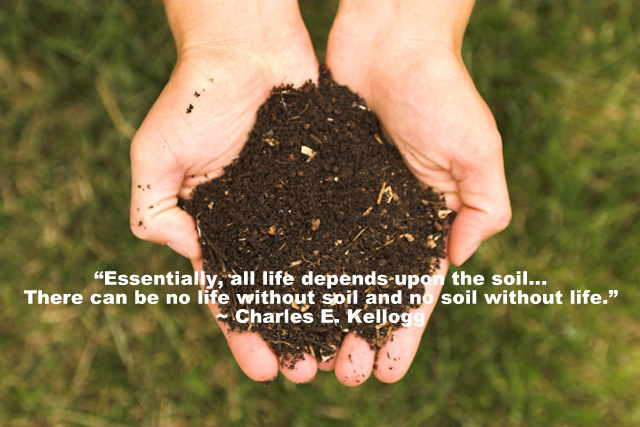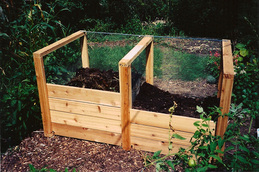 Compost is a living soil enhancer. The strength of compost as a way to improve the health of your plants is through the living complex of microorganisms that it brings with it. These create an ecosystem in the soil which helps to promote root health, arrange nutrients in forms absorbable by the plants, and help get your garden through dry spells by holding on to more water. Composting is an essential part of a truly sustainable food system, as it closes the loop on the essential nutrients that plants need to grow. More than a third of trash generated in the US could be composted and returned to the soil, reducing our need for fertilizers. By composting, you can help to make our local food system a sustainable cycle! Compost makes all the sense in the world, but many find the process smelly, cumbersome and difficult. But composting doesn't have to be that way! Read this Composting 101 article on the basics of home composting. First up, bin type. Composting 101 describes the advantages and disadvantages of both open bins and closed containers. Once you determine which method is best for you, remember that Warren SWCD will sell a closed container in our Annual Tree Seedling Sale! 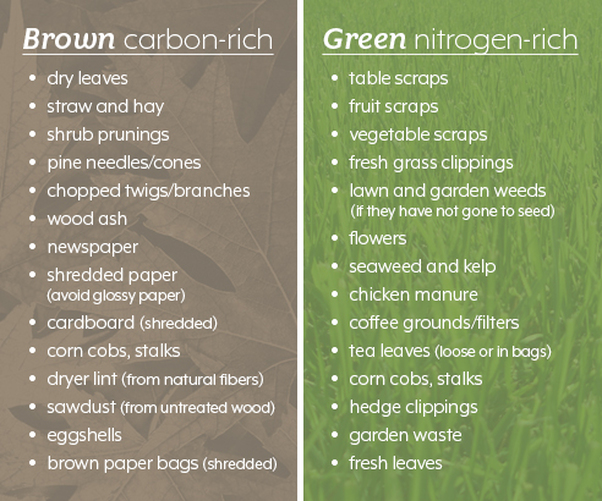 Next up is learning about what to put in your compost bin. Compost is created when you provide the right mixture of key ingredients for the millions of microorganisms that do the dirty work. These microorganisms will eat, multiply, and convert raw materials to compost as long as the environment is right. The environment doesn’t have to be absolutely “perfect,” so you don’t need to be a microbiologist or chemist to have successful compost. You need to provide: food, water, and air. The water and air are easy. The food is a little more complex. Food for your little micro friends consists of two classes of materials, simply referred to as “Greens” and “Browns.” Green materials are high in nitrogen, while brown materials are high in carbon. The green materials provide protein for the micro bugs, while the brown materials provide energy. Follow the advice at Composting 101 to determine the ideal combination or mix of these types of additives but generally you want to have 1/3 green, nitrogen-rich matter and 2/3 brown, carbon-rich matter.. Another comprehensive list of ingredients for your compost bin can be found HERE. Once you decide to start composting there are a few key ideas to read up on. Keeping your compost "hot" is an important skill/art. A "hot" compost bin has the perfect mix of browns and greens, water, air and micro bugs thrown in. This composting is often called aerobic because the microbes that require air have sufficient air to live, eat and reproduce quickly. The compost pile can reach temperatures as high as 160 degrees Fahrenheit, so care should be taken. If your compost bin is working efficiently, compost can be created in several weeks. 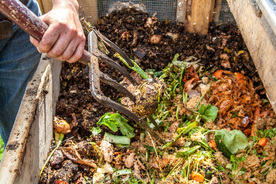 Turning: You’ll maximize your composting efforts if you continuously turn, or mix, the heap. Mixing your heap will help to keep the browns and greens in balance, will distribute moisture, and add essential air (oxygen) to the mixture. The core (the inside) of the compost heap is always hotter and is the center of activity. The outside is generally less active and much cooler. To increase the efficiency of the composting process, mix the heap to bring more of the raw materials from the outside to the core. Bring more food and water to the busy little micro bugs on the inside. Do not add these items to your compost bin:
Perfect uses for your compost:
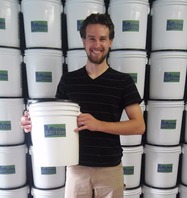 Still need some tips? Read Compost Info Guide: how to make better compost. But what if you don't have the space or desire to compost at home? That's where organizations like Compost Dayton helps out! Compost Dayton exists to make composting easy. Composting is a smelly and dirty process, but with us both the weekly experience and the payment process are simple. All you have to do is fill and set out the bucket! Every week we'll bring you a clean one and track your contributions. If you can use your compost, we bring it to you in the spring. If you can't, we'll donate it to local organic food producers. Visit Compost Dayton to learn more. Molly Conley, Natural Resource Engineer
1 Comment
|
Details
Warren County SWCD Staff BlogA blog to keep you informed on all the latest news at Warren County SWCD and in the conservation world. Archives
May 2024
Categories
All
|
|
|
Contact:PHONE: (513) 695 - 1337
EMAIL: [email protected] HOURS: Monday - Friday 7:30am - 4:00pm (except holidays) Connect:Warren County Soil & Water Conservation District Copyright © 2016
Warren SWCD Privacy Notice. Emails are serviced by Constant Contact. Constant Contact's Privacy Notice. |
